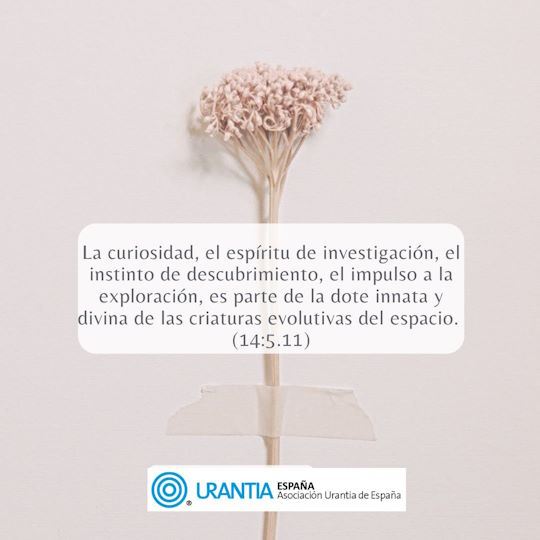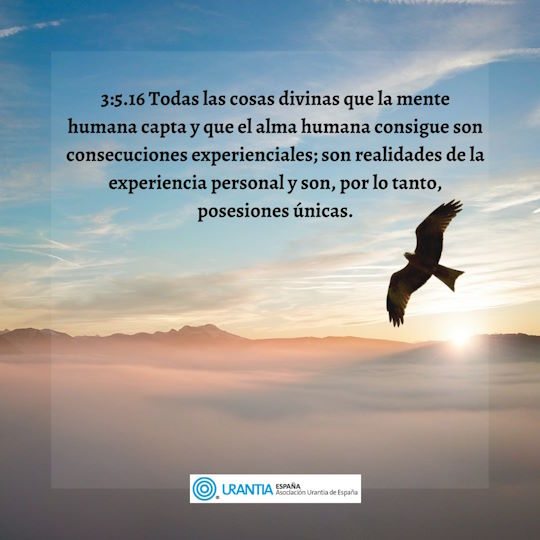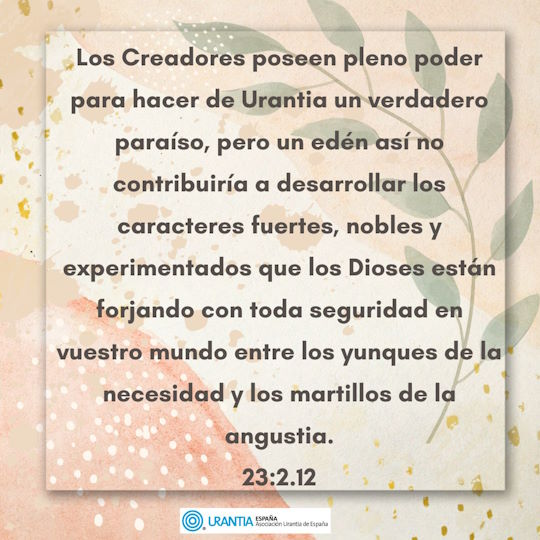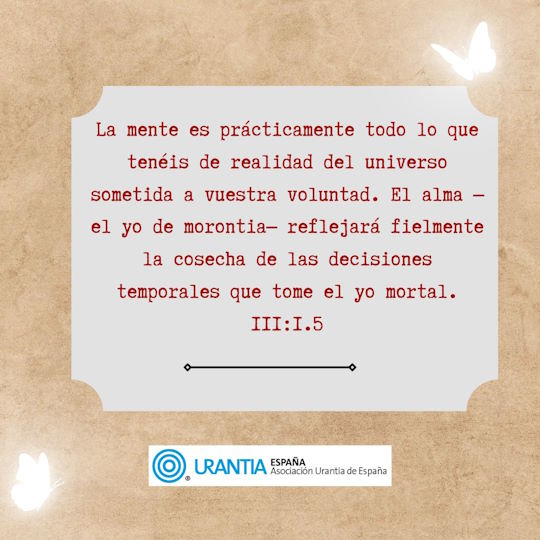© 2024 M. José Sánchez
© 2024 Urantia Association of Spain
¶ The immense usefulness of the useless

Let’s think about a powerful invention, such as electricity. We would be in a world that is diametrically different from the current one if electricity did not exist and there were no infinite number of gadgets, applications, appliances, social networks, Artificial Intelligence, etc., that are nourished and exist thanks to it. Can you imagine a world without electricity? More than one of us would get a big chill just imagining it.
The research of scientists such as Ampère or Faraday on electricity has made possible an infinite number of useful applications for our daily lives, it is true. However, at no time in their interesting careers were these scientists interested in investigating the practical utility of what they studied. For example, Faraday was exclusively absorbed in unraveling the enigmas of the universe; at first chemical enigmas, later physical enigmas. In the end, utility appeared, but it was never the criterion to be followed in order to carry out incessant experiments.
A simple and interesting essay by Abraham Flexner from 1937, “The Usefulness of Useless Knowledge,” masterfully shows us this and more examples to explain that science has a lot to teach us about “the usefulness of the useless.” This American scientist/pedagogue shows us a fascinating account of the history of some discoveries, to show how precisely those theoretical scientific investigations considered most useless, for being devoid of any practical intention, have unexpectedly favored applications, from telecommunications to electricity, which have later been revealed to be fundamental for humanity.
These are fascinating questions, but they could lead us too far. Let us now focus on the vital importance of those values that cannot be weighed and measured with precise instruments.
Everything can be bought, it is true. From parliamentarians to trials, from power to success: everything has a price. But not knowledge: the price that must be paid for knowledge is of a very different nature. Not even a blank check would allow us to instantly acquire what can only be the fruit of individual effort and inexhaustible passion. No one, in short, will be able to undertake in our place the tiring journey that will allow us to learn. Without a great inner motivation, the most important academic title acquired with money will not give us any true knowledge or bring about any metamorphosis of the spirit.
The Urantia Book repeatedly urges us precisely to learn, expand our knowledge, err and explore this fascinating universe in which we were born, because that learned baggage will be ours forever. An intangible but imperishable baggage of our soul.
Curiosity—the spirit of investigation, the urge of discovery, the drive of exploration—is a part of the inborn and divine endowment of evolutionary space creatures. These natural impulses were not given you merely to be frustrated and repressed. True, these ambitious urges must frequently be restrained during your short life on earth, disappointment must be often experienced, but they are to be fully realized and gloriously gratified during the long ages to come. (UB 14:5.11)
But there is something else. Only knowledge can once again challenge the material laws of the market. We can share our knowledge with others without impoverishing ourselves. I can teach a student the theory of relativity or I can show a friend a poem, and that enriches both the giver and the receiver.
It is certainly not easy to understand, in a world dominated by the material and the apparent, the usefulness of the “useless.” It is painful to see human beings in this materialistic desert that often suffocates the spirit due to the interest in accumulating money and power. It is painful to see women and men engaged in a senseless race towards the promised land of profit and in which everything around us (other human beings, objects, nature) does not arouse any interest. It is painful to see human beings with their eyes fixed on appearance, success on social networks, but who do not understand the joy of small everyday gestures, nor discover the beauty that nourishes our lives: a beautiful song, a sunset, a friendly hand that grabs us or a good book that cheers our soul.

The blue book shows us that everything is carefully planned so that we can search and discover for ourselves the pearls of life, wisdom that we will carry with us into eternity.
- Is courage—strength of character—desirable? Then man must be raised in an environment in which it is necessary to deal with difficulties and react to disappointments.
- Is altruism—service to one’s fellow man—desirable? Then life experience must ensure that situations of social inequality are encountered.
- Is hope—the greatness of trust—desirable? Then human existence must constantly confront recurring insecurities and uncertainties. UB 3:5.6-8
We, beings of time and space, limited, fallible and imperfect beings, will learn and grow with constant tests and difficulties, in order to forge lasting learning (unlike other beings already created perfect):
Everything divine that the human mind grasps and the human soul acquires is an experiential attainment, a reality of personal experience, and is therefore a unique possession in contrast to the goodness and righteousness inherent in the errorless personalities of Havona. UB 3:5.16
Everything is part of a very wise plan that seeks to elevate us above the animal.

The writer Kakuzo Okakura, in his book The Book of Tea, recognizes in the pleasure of a man picking a flower to give to his beloved, the precise moment in which the human species rises above animals, above the instinctive, enters the realm of beauty and ascends his mind to the space of the divine.
These angels are all in the chain of recorders extending from the lowest to the highest custodians of the facts of time and the truths of eternity. Some day they will teach you to seek truth as well as fact, to expand your soul as well as your mind. Even now you should learn to water the garden of your heart as well as to seek for the dry sands of knowledge. Forms are valueless when lessons are learned. No chick may be had without the shell, and no shell is of any worth after the chick is hatched. But sometimes error is so great that its rectification by revelation would be fatal to those slowly emerging truths which are essential to its experiential overthrow. When children have their ideals, do not dislodge them; let them grow. And while you are learning to think as men, you should also be learning to pray as children. (UB 48:6.32)
Rilke said in a passage from Letters to a Young Poet:
“These divine qualities are perfectly and absolutely unified in God. And every God-knowing man or angel possesses the potential of unlimited self-expression on ever-progressive levels of unified self-realization by the technique of the never-ending achievement of Godlikeness—the experiential blending in the evolutionary experience of eternal truth, universal beauty, and divine goodness.”
These divine qualities are perfectly and absolutely unified in God. And every God-knowing man or angel possesses the potential of unlimited self-expression on ever-progressive levels of unified self-realization by the technique of the never-ending achievement of Godlikeness—the experiential blending in the evolutionary experience of eternal truth, universal beauty, and divine goodness. (UB 44:7.4)
Ionesco said: “Poetry, the need to imagine, to create is as fundamental as breathing.”

In the folds of what are considered superfluous activities (reading an essay, having tea with a friend one afternoon, teaching a child to ride a bike, etc.), we can perceive the stimuli to think of a better world, to cultivate the utopia of eliminating the injustices and painful inequalities that we see in our society.
What else could we discover with The Urantia Book about the importance of striving to learn and why the material universe is a great and immense school?
The book poses several very interesting answers. Today we can stay with this idea: it affirms that valuable learning will not perish because our divine spark, given when we were very young, will work with the mind and generate the wonderful soul. Our tiring and arduous work in the matter will have a wonderful counterpart: our soul.
Precisely, seeking to expand our souls, fill it with more wisdom, make it ascend more, we create the Light and Life newsletter. We want to expand our cosmic vision with a series of very interesting works and proposals:
- Bill Sadler will talk to us about personality
- Antonio Moya will make us think with a series of clues
- Seppo Kanerva will ask us: What does The Urantia Book teach regarding the dissemination of its teachings?
- Eduardo Altuzarra will tell us the interesting and curious history of the Urantia movement in Spain
- The chronicle of the life of Jesus will focus on paper 153 of the book
- Children’s Guide to The Urantia Book: Jesus at 18
- March’s recommendation for another book on spiritual growth is Nobel Prize winner José Saramago’s novel The Gospel According to Jesus Christ
- In the recommended Audio, Jaime Marco will talk to us about The Parable of the Mines (Radio Urantia’s “Light and Life” space)
- Navigating through life will use the poetic text “The mirror”
- The Spanish reader Francisco Javier Santos Castilla will tell us about his favorite paragraph
- Juan Antonio Figal will answer the Urantian questionnaire
- Without forgetting that there will also be presentations in the Zoom rooms of the UBIS and the Urantia Association of Spain.
What else can we tell you in this issue of Luz y Vida, to conclude?
Among so many uncertainties, however, one thing is certain: if we let what is free die, if we renounce the generating force of the useless, if we listen only to the siren song that guides us towards economic benefit, we will only be able to produce a sick community that, lost, will end up losing its sense of self and of life.
Let us then enjoy the peaceful reading of our beloved book, its study. Let us enjoy talking to our plants, contemplating a sunset, being grateful that there is music on Urantia or petting a sleeping animal. Because in this way we will be those fair and somewhat crazy people (as Steve Jobs would say) who can save the world. We will not fit into the world, but we will demonstrate that swimming against the current by cultivating the “useless” is an effort that is worthwhile: our soul will grow and shine at divine levels.
¶ References
- Index of the magazine “Luz y Vida” of the Association of Spain
- This article from the magazine “Luz y Vida Online”